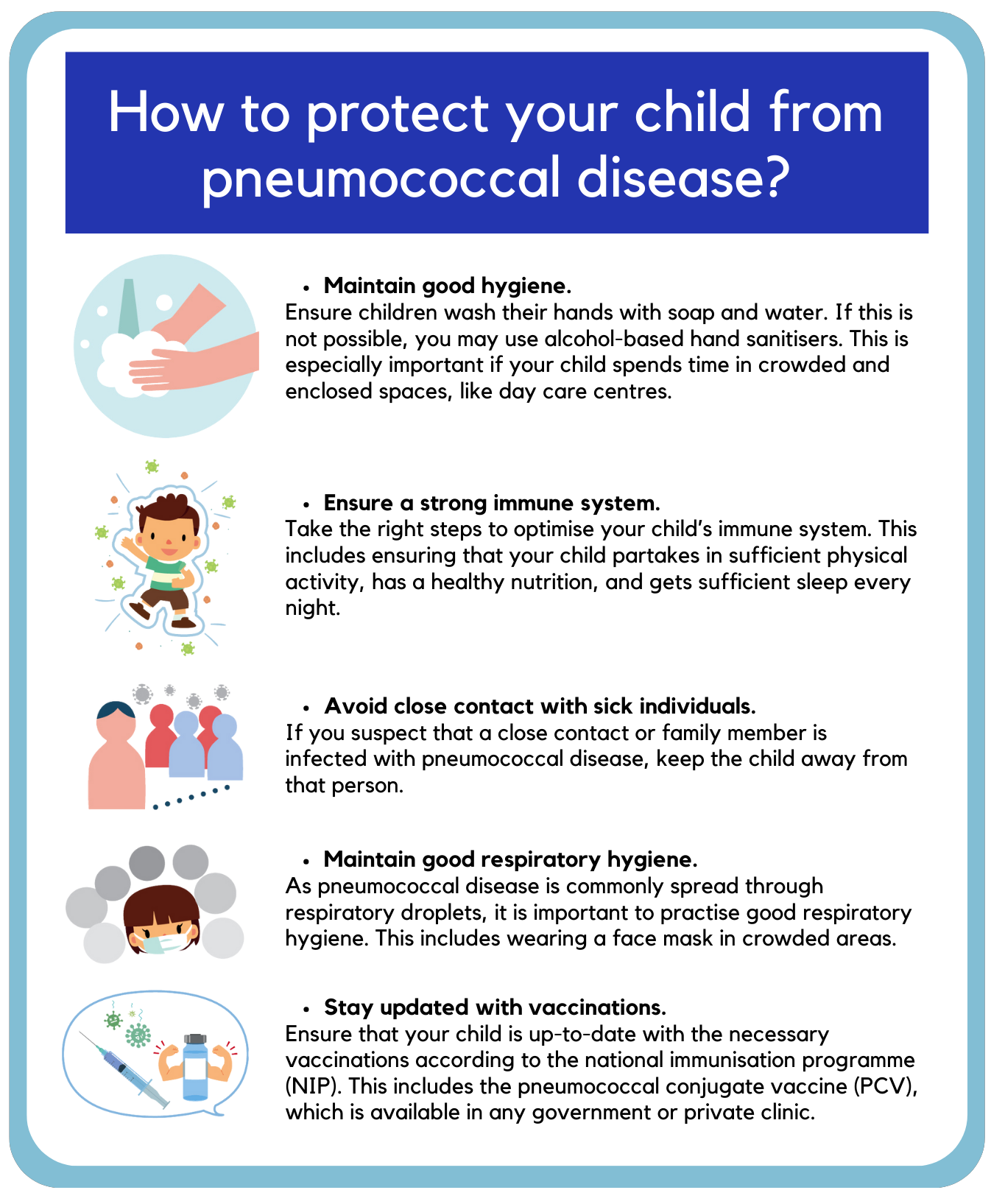Certain common childhood diseases can have devastating consequences. Pneumococcal disease is one of these diseases, so it is important for parents to truly understand the nature of the disease in order to keep your little one safe and healthy.
What is pneumococcal disease?
Pneumococcal disease refers to an infection caused by a type of bacteria called S. pneumoniae, which is commonly referred to as pneumococcus. This bacterium can be transmitted from one person to another through respiratory droplets of an infected individual (e.g. when an infected person sneezes or coughs).
The majority of individuals infected by pneumococcal disease often experience mild symptoms. However, young children below the age of 2 years old are at a particularly high risk for developing severe complications. These occur when the bacteria spreads from the throat to other parts of the body, which can include the blood, lungs, ears, and brain.
Other high-risk groups include individuals who:
- Have a weakened immune system (e.g. from chemotherapy, immunosuppressive therapy, etc.)
- Have chronic diseases (e.g. diabetes, heart disease, kidney disease, etc.)
- Have a hearing aid/cochlear implant
- Are above 65 years old
How does pneumococcal disease cause pneumonia?
If S. pneumoniae spreads from the throat to the deeper structures in the respiratory system, this can cause pneumococcal pneumonia. In mild cases, this can cause symptoms such as fever, cough, chest pain, headache, difficulty breathing, etc. However, in more serious circumstances, this can result in an infection of the brain (meningitis), respiratory failure, or even death.
How does pneumococcal disease cause acute otitis media (middle ear infection)
S. pneumoniae also has the ability to travel from the throat to the narrow passage that connects the nasal passage to the ears (eustachian tubes). When this happens, it can infect the surrounding structures, leading to a middle ear infection. This can cause symptoms like ear pain, headaches, fever, ear discharge, etc.

About the Pneumococcal Conjugate Vaccine (PCV)
Vaccinations are one of the best options parents have to protect their children from infections. In the case of pneumococcal disease, Malaysia has adopted the pneumococcal conjugate vaccine (PCV10) into the national immunisation schedule. The PCV10 vaccine protects against 10 serotypes of pneumococcus and is administered in three doses: two primer doses (at ages four and six months) and a booster shot at age 15 months.
Speak with your doctor about the vaccination to learn more about protecting your little one from the risk of pneumococcal disease.
Conclusion
Parents play a vital role in protecting their child’s health, and therefore, understanding common childhood diseases like pneumococcal disease is essential. Take the right steps to keep your little one safe and healthy. Together, we can create a healthier future for our precious children.


